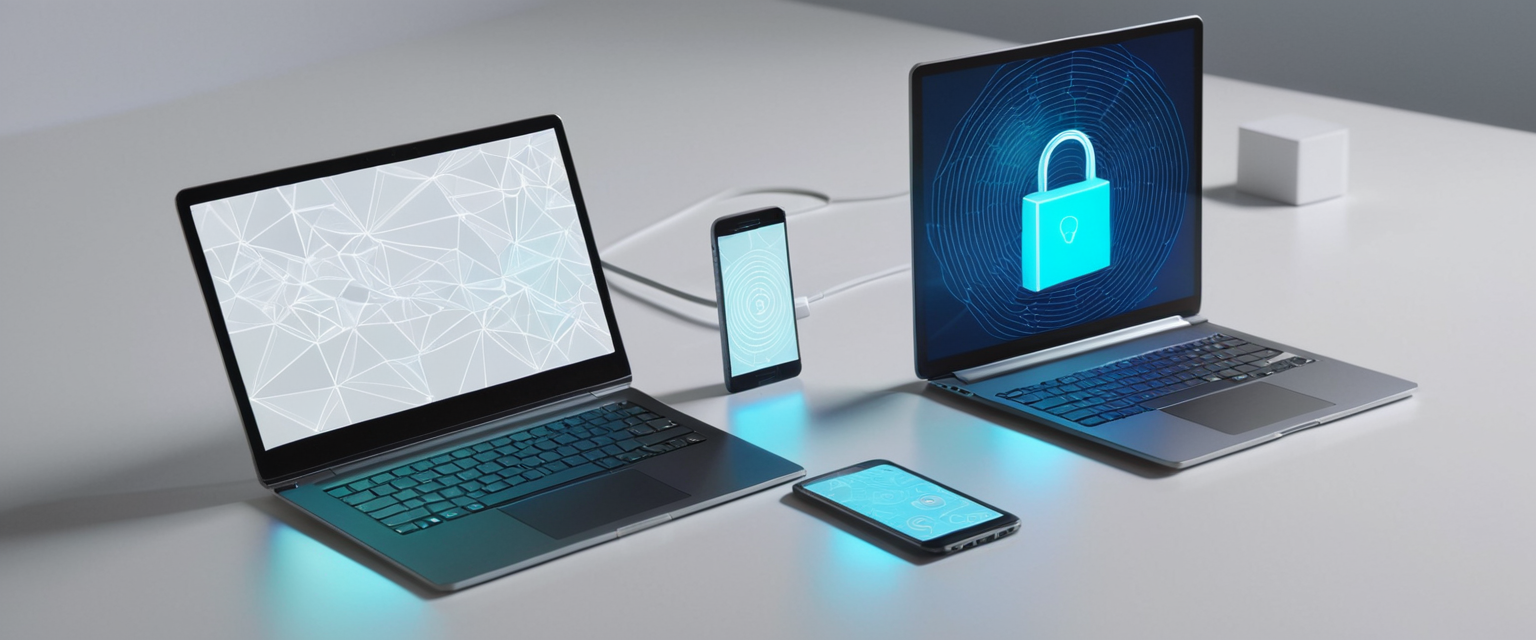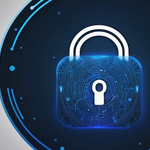
The landscape of antivirus software in 2025 presents a complex ecosystem of competing solutions, each offering varying degrees of protection, features, and performance characteristics that make the determination of “best” antivirus software heavily dependent on individual user needs, device types, and security priorities. Based on extensive independent testing and hands-on evaluation from leading cybersecurity research organizations, Norton 360 emerges as the overall best antivirus solution due to its exceptional malware detection rates, comprehensive feature set including VPN and parental controls, and strong performance across Windows, macOS, iOS, and Android platforms. However, the optimal choice for any given user requires careful consideration of multiple factors including threat detection capabilities, system performance impact, auxiliary security features, pricing structure, and the specific vulnerabilities associated with their digital lifestyle. This analysis synthesizes findings from independent testing laboratories, expert reviews, and technical evaluations to provide a thorough examination of what constitutes the best antivirus software and how organizations and individuals can make informed decisions when selecting protection for their devices.
Understanding Antivirus Software: Fundamentals and Functionality
Antivirus software operates as the foundational layer of modern cybersecurity, functioning as a preventative and reactive mechanism against the ever-expanding array of digital threats that target computers, mobile devices, and network systems. At its core, antivirus protection detects, neutralizes, and removes malware through continuous scanning of devices and comparison of files against regularly updated databases of known threats, while modern solutions also employ behavioral analysis to identify potential malware that has not yet been catalogued in existing databases. The essential function of antivirus software extends beyond simple virus detection to encompass a comprehensive defensive strategy against multiple categories of malicious software, including ransomware that encrypts user files and demands payment for decryption, spyware that covertly harvests sensitive personal information and banking credentials, adware that displays unwanted advertisements while monitoring online behavior, and trojans that masquerade as legitimate software to gain unauthorized system access.
The operational mechanisms of contemporary antivirus solutions employ multiple detection methodologies working in concert to maximize threat identification and mitigation. Traditional signature-based detection, which remains fundamental to most antivirus engines, identifies malware by comparing file characteristics against extensive databases of known malicious software signatures that are updated daily as new threats are discovered and analyzed. However, this approach encounters inherent limitations when confronting novel threats, as legacy antivirus solutions relying solely on signature-based methods detect approximately 57 percent of attacks, with this percentage declining as attackers develop increasingly sophisticated evasion techniques. To address these limitations, next-generation antivirus technology combines machine learning algorithms with behavior detection systems and signature-based methods to identify zero-day malware and other unknown threats based on suspicious patterns of activity, enabling proactive rather than purely reactive protection.
Cloud-based antivirus architecture represents a significant technological evolution in threat protection, offloading computational intensity to remote servers and enabling lighter footprints on local devices. Cloud-based antiviruses store virus definitions and conduct analysis on remote servers rather than requiring each device to maintain comprehensive malware databases, resulting in significantly reduced system resource consumption and allowing devices to operate with minimal performance degradation. This architectural approach provides substantial advantages including automatic updates that eliminate the possibility of users inadvertently operating with outdated threat definitions, centralized management capabilities for users maintaining multiple devices, and faster detection and response to emerging threats through real-time threat intelligence sharing across the cloud infrastructure.
Leading Antivirus Products and Market Leaders
The antivirus market in 2025 features several dominant providers whose products have consistently earned recognition from independent testing laboratories and security experts for comprehensive threat detection and feature richness. Norton 360 has secured its position as the best overall antivirus software through exceptional performance across protection, performance, and usability metrics in independent testing, combined with a comprehensive suite of additional security features that extend protection beyond basic malware detection. The product’s success stems from multiple contributing factors, including its earned top ratings from AV-TEST and other trusted independent testing laboratories, real-time threat detection capabilities that maintain near-perfect detection rates, and integration of supplementary security tools including an unlimited VPN service, password manager, dark web monitoring, and parental controls—features that collectively justify its pricing positioning.
Bitdefender represents the leading competitor for malware protection specifically, having demonstrated exceptional detection capabilities through independent testing and hands-on evaluation. During AV-TEST’s June 2025 testing, Bitdefender achieved perfect scores across all testing categories, detecting 100 percent of both zero-day and four-week-old malware samples, while AV-Comparatives’ March 2025 test awarded Bitdefender its highest malware protection honor with Advanced+ certification. The software’s technical approach combines signature-based scanning with behavioral analysis and smart automation to achieve these exceptional results, while supplementary features including the AI-powered Scamio chatbot for phishing detection, webcam protection to prevent unauthorized camera access, and microphone monitoring add layers of privacy protection. Bitdefender’s pricing structure begins at just $9.99 per year for its entry-level Mobile Security plan, though this basic tier covers only a single mobile device, while Total Security plans extending to five devices cost $59.99 annually.
McAfee Total Protection serves users seeking comprehensive feature integration and identity theft protection alongside antivirus capabilities, having achieved consistent performance in independent testing with recognition from AV-TEST for strong protection, performance, and usability metrics. The product distinguishes itself through inclusion of an unlimited-device protection option in its premium Family plan, a built-in VPN service, comprehensive identity monitoring with up to two million dollars in identity theft coverage and recovery assistance, and automatic scam protection powered by machine learning algorithms. McAfee’s firewall technology operates at the network level to protect entire households, monitoring all incoming and outgoing traffic and blocking suspicious connections before they can compromise devices.
Kaspersky Premium represents a feature-intensive solution offering perhaps the most comprehensive package of security and management capabilities available in the current market, featuring extensive configuration options for virtually every component, ransomware protection, web filtering, email security, webcam and file protection, a two-way firewall, ad blocking, instant-messaging client monitoring, file shredding, secure browsing, parental controls with GPS tracking, automatic backups, a password manager, and a VPN service. The product earned 100 percent certification from AV-TEST in August 2025 testing, with perfect scores in protection and usability categories. However, Kaspersky faces significant geopolitical complications, having been banned or recommended against by numerous governments including the United States, Lithuania, and the Netherlands, as well as major corporations including Best Buy, Barclays, and Twitter due to alleged espionage concerns and the company’s Russian origins.
TotalAV serves users prioritizing value and system performance, offering competitive pricing starting from $19.00 per year alongside strong malware detection capabilities and comprehensive feature integration. Independent testing showed TotalAV maintaining near 100 percent malware detection and protection rates across Windows, macOS, and Android platforms, with the product successfully blocking test malware samples 10 out of 10 times during hands-on evaluation. The software includes real-time protection, a system cleanup tool that meaningfully improves device performance, automatic malware definition updates, an ad blocker, VPN service, password manager, and webcam protection, with customer support available through live chat, phone, and email at all hours.
AVG and Avast represent budget-friendly alternatives with strong detection capabilities, with AVG particularly distinguished by consistent near-top rankings in independent performance benchmarks and measured impact on system resources. AVG ranked just behind McAfee in AV-Comparatives’ performance scoring but outperformed it during hands-on testing, running cleaner and quieter with faster scan completion and barely perceptible resource spikes. The product offers award-winning antivirus protection for up to ten devices, includes webcam protection, safe browsing and email features, 24/7 protection with automatic updates, a VPN with anti-tracking capabilities, and safeguards against phishing sites. Avast similarly provides comprehensive features including customizable firewall, Wi-Fi Inspector, data shredding, a sandbox for secure execution of suspicious files, VPN, password manager, and a secure browser with integrated ad blocker.
ESET Security Ultimate earned 100 percent certification in AV-TEST’s August 2025 testing with perfect scores across all categories, offering multilayered anti-malware protection, server security, anti-theft capabilities, and multilayered ransomware protection. The product supports individual consumers through large enterprises, with specialized variants designed to accommodate varying organizational needs and complexity levels.
Comprehensive Feature Analysis and Advanced Protection Mechanisms
The evolution of antivirus software has dramatically expanded beyond malware detection to encompass a sophisticated array of complementary security and privacy features that collectively constitute comprehensive digital protection. Virtual Private Networks integrated into premium antivirus suites encrypt all network traffic and route communications through protected servers, preventing unauthorized monitoring of browsing activity and protecting sensitive information transmitted across public Wi-Fi networks. Password managers included in advanced antivirus offerings securely store and automatically populate login credentials across websites and applications, protecting users from credential theft and enabling implementation of unique complex passwords for each online service. This integration reduces the critical security vulnerability created by password reuse, where compromise of a single website password can grant attackers access to multiple services.
Dark web monitoring capabilities represent a significant advance in proactive identity protection, with services included in premium antivirus offerings scanning hidden internet marketplaces and forums where stolen personal information is bought and sold, notifying users when their data appears in these criminal repositories. Norton’s dark web monitoring searches for email addresses, Social Security numbers, date of birth, driver’s license numbers, physical addresses, phone numbers, bank account numbers, credit card numbers, and gamer tags, enabling users to take immediate protective action such as password changes and credit account freezes upon notification of exposure. This proactive notification mechanism transforms identity protection from reactive response to compromise into preemptive damage mitigation.
Parental control features integrated into family-oriented antivirus packages enable parents to monitor children’s online activities, restrict access to inappropriate websites, enforce time limits on device usage, track physical location through GPS, and receive alerts regarding potential cyberbullying or exposure to harmful content. Norton Family provides web supervision, time supervision, and search supervision capabilities, while Bitdefender includes advanced web filtering and screen time management alongside location tracking. These capabilities address the reality that children face substantially different threat landscapes than adults, with exposure to predatory content, inappropriate material, and social engineering representing significant risks requiring active parental oversight.
Ransomware protection mechanisms operating at behavioral and system levels identify characteristic attack patterns and prevent encryption of user files by malicious processes. Bitdefender’s multi-layer ransomware protection achieved 100 percent effectiveness during quick scans in hands-on testing, while Norton’s comprehensive protection specifically addresses ransomware alongside broader malware threats. Advanced solutions employ file system monitoring to detect suspicious mass file encryption attempts, create isolated safe environments for suspicious program execution to prevent system compromise, and maintain immutable backups enabling file recovery without ransom payment.
Vulnerability scanning capabilities identify security weaknesses in software, operating systems, and network configurations that could be exploited by attackers to gain initial system access. Good antivirus programs provide vulnerability scanning to identify security flaws and recommend corrective updates, enabling users to proactively close attack vectors before malicious actors can exploit them. This capability extends antivirus protection beyond reactive malware detection to include environmental security strengthening through identification and remediation of underlying system weaknesses.
Protect Your Digital Life with Activate Security
Get 14 powerful security tools in one comprehensive suite. VPN, antivirus, password manager, dark web monitoring, and more.
Get Protected NowFirewall protection features included in comprehensive antivirus packages monitor incoming and outgoing network traffic, apply rule-based filtering to block malicious connections, and enable users to customize network access policies. Norton 360 Deluxe’s Smart Firewall works in conjunction with an Intrusion Prevention System that hides unused ports to limit connection options for third parties, while McAfee’s firewall protection operates at the network level to protect entire households. Two-way firewall implementations monitor both incoming attacks and outgoing connections initiated by malware, preventing compromised systems from communicating with command-and-control servers operated by attackers.
System optimization tools included in premium antivirus packages address the common complaint that antivirus software slows device performance through unnecessary background processes and inefficient scanning. Cloud-based scanning architectures enable faster scans through remote computational resources, while intelligent scheduling defers scans and updates to periods when devices are idle or connected to power sources, preventing user-facing performance degradation during active computing sessions.
Evaluation Criteria: How Experts Test and Compare Antivirus Software
Independent testing laboratories have developed rigorous methodologies to evaluate antivirus effectiveness, performance impact, and usability across diverse threat landscapes and operating conditions. The AV-TEST Institute, one of the leading independent testing organizations, employs a point-based evaluation system where products achieve a maximum of six points each in three categories—protection, performance, and usability—yielding a maximum possible score of eighteen points. Products achieving 10 points or higher receive the AV-TEST seal of approval, while those scoring 17.5 points or higher receive the prestigious TOP PRODUCT award designation. During July and August 2025 testing of Windows 11 home user security products, multiple leading products including AVG Internet Security, Bitdefender Total Security, ESET Security Ultimate, F-Secure Total, Kaspersky Premium, McAfee Total Protection, and Norton Norton 360 achieved perfect 100-point ratings in all three categories, earning the TOP PRODUCT designation.
AV-Comparatives conducts alternative testing methodologies emphasizing real-world threat scenarios and end-user experiences. The Malware Protection Test evaluates not only detection capabilities but also protective mechanisms preventing malicious programs from executing damaging system modifications. This distinction proves significant, as an antivirus product might detect an active malware file but fail to prevent the damage such malware could inflict if execution were inadvertently allowed. The organization’s False Positive Test assesses the accuracy of threat classification by scanning clean files and measuring incorrect malware identification rates, recognizing that false positives create substantial user frustration and undermine antivirus adoption. During September 2025 testing, Kaspersky achieved exceptional results with only three false positives among test files, while Microsoft Defender generated 27 false positives and McAfee generated 46 false positives, demonstrating substantial variation in classification accuracy across major products.
Independent testing results consistently demonstrate that no single antivirus product achieves 100 percent threat detection, reflecting the fundamental challenge of identifying novel malware variants and sophisticated evasion techniques before they become widespread. The acceptable false positive rate for antivirus products must remain extraordinarily low, with effective rates below 0.001 percent required to prevent system instability from incorrectly identifying legitimate files as malicious, as even a five percent false positive rate on systems containing 500,000 files would result in identification of 25,000 files as malicious with catastrophic consequences if deletion were attempted.
Consumer Reports and other consumer-focused testing organizations emphasize practical evaluation conducted using default product settings in realistic usage scenarios rather than laboratory-controlled testing conditions. These evaluations assess installation difficulty, user interface intuitiveness, scanning speed, system performance during protection, accuracy of threat identification, false alarm rates, and quality of customer support, providing insight into products’ real-world usability beyond laboratory metrics.

Platform-Specific Considerations and Device Protection
The contemporary digital ecosystem requires antivirus protection across multiple device types and operating systems, as malware targeting Windows systems differs fundamentally from threats targeting macOS, iOS, Android, and Linux environments. Norton Antivirus Plus provides cross-platform protection for Windows, macOS, iOS, and Android devices with intuitive apps for each platform, representing the best cross-platform antivirus solution according to Security.org. This comprehensive approach addresses the reality that users routinely access email, banking, and sensitive applications across smartphones, tablets, laptops, and desktop computers, requiring coordinated security across the entire device ecosystem.
Windows remains the primary target for malware development due to its substantial market share, yet benefits from the tightly integrated Microsoft Defender antivirus that arrives pre-installed on Windows 10 and Windows 11 systems. Windows Security is a full security suite on par with paid third-party antivirus solutions, featuring Defender, ransomware protection, memory integrity, and core isolation with regularly updated virus definitions, while remaining free and integrated with Windows to minimize system impact. However, Defender exhibits reliance on cloud-based threat detection and exhibits weaker behavioral protection than some premium alternatives, making it particularly vulnerable to novel malware that lacks existing signature definitions.
macOS users historically encountered minimal malware threats compared to Windows systems, yet this asymmetry has shifted substantially as attackers increasingly target Apple devices. Intego represents the leading antivirus choice for macOS, having achieved specialized design for Apple computers with strong malware protection, intuitive firewall, and powerful VPN alongside Mac-specific security features including NetBarrier for public Wi-Fi protection. Intego’s Mac Premium Bundle includes disk optimization tools and parental controls specifically designed for macOS, with support for protecting up to five Macs and backed by a thirty-day money-back guarantee. Alternative solutions including Bitdefender and Norton also provide effective macOS protection, though Intego’s specialization enables inclusion of Mac-specific features that general-purpose cross-platform solutions cannot replicate.
iOS and Android mobile platforms present distinct threat landscapes requiring platform-specific protection. AVG Mobile Security provides call blocking, photo vault protection, and real-time scanning for both Android and iOS devices, with mobile VPN and anti-theft tools making it one of the more complete mobile antivirus applications without overwhelming users with settings complexity. The sophistication of mobile malware has increased substantially, with attackers employing phishing, fake applications disguised as legitimate software, and SMS-based attacks to compromise devices and extract banking credentials or personal information.
Free vs. Paid Antivirus: The Cost-Benefit Analysis
The availability of free antivirus solutions creates a persistent tension between cost minimization and security comprehensiveness, with fundamental tradeoffs shaping the viability of free protection across different user categories. Free antivirus software typically includes malware detection and removal, malware prevention monitoring for future threats, safe banking and shopping features, network monitoring, and file protection against ransomware, providing baseline protection for users engaged in minimal high-risk activities. However, free versions deliberately omit advanced features including password managers, VPN services, parental controls, and identity theft protection, either to incentivize paid tier upgrades or due to resource constraints of companies unable to support comprehensive feature sets without revenue generation.
A critical concern surrounding free antivirus software involves the business model sustaining development and operations, as the maxim “you get what you pay for” suggests that free services must generate revenue through alternative mechanisms. Many free antivirus providers monetize user data through collection and sale of browsing habits, location information, and other personal characteristics to third parties, effectively converting user privacy into revenue generation. This monetization approach creates potential security vulnerabilities distinct from malware threats, as users trading privacy for security achieve neither.
Windows Defender provides adequate protection for basic computer use but lacks advanced features found in paid antivirus programs, making it a reasonable baseline for users exclusively engaged in email checking and web browsing with minimal downloads from untrusted sources. The software receives frequent updates ensuring protection against newly discovered threats, and its deep integration with Windows prevents performance degradation common with third-party antivirus solutions conflicting with operating system functions.
For users engaging in higher-risk activities, paid antivirus solutions provide substantially enhanced protection justifying their cost. Users frequently downloading files, visiting less secure websites, conducting online banking, or handling sensitive business information benefit from paid antivirus programs offering features Windows Defender lacks, including advanced behavioral detection to identify novel malware, enhanced firewall protection, and identity theft protection. Additionally, paid antivirus provides independent updates separate from Windows security patches, enabling protection against threats even when Windows updates are delayed or not yet available.
Pricing comparisons reveal substantial variation across vendors and subscription tiers. Norton 360 Deluxe costs $49.99 annually for five devices, Bitdefender Total Security costs $59.99 annually for five devices, McAfee Total Protection Premium costs $44.99 annually for unlimited devices, and TotalAV costs $19.00 annually for basic protection. However, renewal pricing frequently increases substantially after the initial discounted year, with Norton renewing at significantly higher rates than initial promotional pricing, a business practice that disproportionately penalizes loyal customers.
Customer Support and User Experience
The quality of customer support becomes increasingly significant during security events or technical difficulties, as inadequate support during breaches or ransomware incidents can dramatically amplify damage and recovery costs. Surfshark provides top-rated antivirus with best customer support through twenty-four-hour live chat and email assistance, Norton 360 offers excellent online reviews with twenty-four-hour phone and live chat support, and TotalAV provides rare combined twenty-four-hour live chat and phone support alongside email options. These support channels prove essential for users encountering installation difficulties, false positives requiring antivirus configuration adjustments, or security events requiring expert guidance on containment and recovery procedures.
User interface design significantly impacts antivirus effectiveness through its influence on user behavior and willingness to maintain active protection. Norton provides a highly intuitive user interface making it ideal for first-time antivirus users, though informative pop-ups occasionally prove annoying to experienced users. McAfee offers clear and concise main screens enabling straightforward navigation of major functions. Both solutions employ modern, organized interfaces differing from outdated clunky designs that historically characterized antivirus software.
Mobile applications merit particular attention given the ubiquity of smartphones and tablets in modern digital lifestyles. Norton provides most features across iOS and Android platforms, with TotalAV receiving strong App Store ratings at 4.6 stars and performing well at detecting and blocking threats without noticeable slowdown, while AVG receives similarly strong 4.7-star App Store ratings and provides identity protection, photo vault, Wi-Fi security, and secure browsing for iPhone users.
Advanced Threat Protection and Sophisticated Attack Prevention
The contemporary threat landscape extends far beyond signature-based malware to include sophisticated attacks exploiting zero-day vulnerabilities, polymorphic malware that mutates to evade detection, and advanced persistent threats targeting specific organizations with customized attack methodologies. Zero-day threats represent vulnerabilities unknown to software developers with no scheduled patches, enabling attackers to exploit security flaws before defensive measures become available, making prevention through vulnerability mitigation and behavioral analysis more effective than signature-based detection that requires existing threat knowledge. Next-generation antivirus solutions employ machine learning and behavioral monitoring to identify characteristic patterns of exploitation even for novel attack methods previously unknown to security vendors.
Cybercriminals evade antivirus detection through quantity attacks deploying enormous numbers of Trojan variants to overwhelm analysis capacity, obfuscation techniques disguising malware intent through encryption and meaningless code addition, Trojan horses that mimic legitimate processes by hijacking trusted program icons and signatures, polymorphic malware that repeatedly mutates using encryption keys and self-propagating code to avoid fixed signature detection, and zero-day threats directly exploiting unknown vulnerabilities. These evasion methodologies highlight fundamental limitations of antivirus software, as perfect detection remains theoretically impossible given the continuous evolution of threat techniques and the fundamental asymmetry between defenders reacting to existing exploits and attackers creating novel techniques.

Ransomware Considerations and Specialized Protection
Ransomware attacks have evolved into the most financially damaging category of cyber threats, with ransomware losses reaching nearly 450 million dollars in the first half of 2023 alone, demonstrating the devastating financial impact of successful attacks. Ransomware losses have increased dramatically despite the number of attacks remaining relatively constant, indicating that successful attacks result in substantially higher demanded ransom amounts and more severe business disruption than previously observed. Modern ransomware employs encryption preventing file access without decryption keys held exclusively by attackers, combining encryption with exfiltration of sensitive files to enable dual extortion through both file access denial and public release threats.
Effective ransomware defense requires multifaceted strategies extending beyond antivirus signature detection to include behavioral protection preventing mass file encryption, network segmentation limiting ransomware propagation, immutable backup systems enabling recovery without ransom payment, and vulnerability management closing exploitation vectors. Norton includes ransomware protection, cloud backup, and webcam protection across all covered devices, with higher tiers providing identity theft protection features enabling comprehensive breach response. Bitdefender achieves perfect 100 percent ransomware blocking effectiveness during quick scans through multi-layer protection mechanisms combining signature detection, behavioral analysis, and file encryption prevention.
Specialized Use Cases and Tailored Solutions
Different user categories require antivirus solutions optimized for specific threat profiles and operational requirements. Gamers benefit from antivirus solutions minimizing CPU usage and scan interruption during intensive gaming applications, with Surfshark noted as particularly suitable due to absence of bloatware and minimal system footprint enabling real-time protection without performance interference. Professionals handling sensitive information and high-value individuals targeted for espionage require antivirus solutions beyond baseline consumer protection, justifying investment in premium paid solutions with advanced features and superior threat intelligence.
Parents require comprehensive parental control capabilities extending protection beyond malware to encompass inappropriate content exposure, excessive screen time, and cyberbullying. Norton 360 Deluxe offers the most robust parental control suites with Norton Family capabilities enabling extensive monitoring of children’s browsing and search activity, while Bitdefender provides advanced content filtering and screen time management with location tracking. Kaspersky Safe Kids provides focused parental control at reduced cost with app use control, screen time management, GPS tracking, and social network monitoring, though requiring integration with Kaspersky’s antivirus solutions for comprehensive protection.
Enterprise and business users require centralized management capabilities enabling IT administrators to deploy, configure, and monitor antivirus across hundreds or thousands of endpoints. Enterprise solutions including Bitdefender GravityZone, CrowdStrike Falcon, and SentinelOne Singularity provide cloud-based management consoles, centralized policy enforcement, detailed reporting and compliance documentation, and integration with broader security information and event management systems. These solutions extend far beyond consumer antivirus to encompass endpoint detection and response, threat hunting, and incident response capabilities essential for business continuity and regulatory compliance.
Performance Impact and System Resource Consumption
A persistent criticism of antivirus software involves the performance degradation introduced through constant background scanning, real-time file monitoring, and resource consumption competing with user applications for limited computing resources. AVG consistently ranks near the top in independent performance benchmarks, offering one of the lightest antivirus experiences available without slowing boot times or draining background resources even during full system scans. The product runs cleaner and quieter than competing solutions, with scans finishing faster and resource spikes barely noticeable even during intensive multitasking.
Cloud-based antivirus architectures dramatically reduce local system impact through offloading computational requirements to remote servers, enabling lightweight agent software on user devices that merely transmits suspicious files to the cloud for analysis[5 Best Cloud Antiviruses in 2025: Expert Ranked]. Webroot exemplifies this approach with fully cloud-based antivirus using only megabytes of hard drive space with small installation agents taking seconds to install, fast scan execution, low RAM usage during scanning, and automatic updates without storage burden on user devices. These architectural advantages prove particularly valuable for older computers with limited resources, where traditional antivirus solutions capable of consuming fifty percent or more of available CPU and RAM would render systems unusable during scanning operations.
Pricing Models and Renewal Cost Considerations
Antivirus subscription pricing follows a sophisticated tiered model exploiting consumer inattention to renewal terms and leveraging switching costs created through account setup and device configuration. Initial promotional pricing substantially undercuts renewal rates, with Norton exemplifying this practice through introductory pricing of $49.99 annually for five devices followed by renewal at substantially higher rates. This pricing strategy captures price-sensitive initial customers while maximizing revenue from loyal users unlikely to research alternative solutions despite facing price increases of 50 to 100 percent at renewal.
Users concerned about renewal pricing increases have successfully employed strategies including cancellation of existing subscriptions before renewal and re-enrollment as new customers at promotional rates, or purchasing through third-party retailers including Amazon and Best Buy where promotional pricing sometimes remains available. However, this approach requires proactive management and risks temporary security gaps during the transition period between cancellations and re-enrollment.
Multi-year and family plans offer reduced per-device or per-year costs compared to annual subscriptions, making these options attractive for households maintaining multiple devices or users planning to maintain consistent antivirus coverage across extended periods. McAfee Total Protection Premium costs $44.99 annually for unlimited devices, providing exceptional value for families with multiple computers, smartphones, and tablets compared to Bitdefender’s approach of limiting device counts on lower tiers.

Limitations and Fundamental Security Challenges
Despite substantial technological advancement and independent testing demonstrating high detection rates, antivirus software remains imperfect and cannot guarantee absolute protection against all threats. The fundamental challenge involves the asymmetry between defenders requiring protection against all possible attacks and attackers needing to discover only a single exploitable vulnerability. No single antivirus product achieves 100 percent foolproof prevention of all threats at any given time, with security ultimately requiring multi-layered defense combining antivirus, firewalls, intrusion prevention, behavioral monitoring, regular patching, and most critically, informed user decision-making.
The “first and last line of defense” remains human behavior, as antivirus software cannot prevent users from downloading malicious files from untrusted sources, falling for social engineering attacks, or reusing passwords across multiple online services. Security ultimately depends on layers rather than any single solution or technology, with effective protection requiring combination of technical controls and behavioral practices. This reality positions antivirus as necessary but insufficient, requiring supplementation with VPN services protecting network traffic, password managers enabling unique credentials for each online service, multi-factor authentication preventing account access despite password compromise, and regular security training enabling recognition and avoidance of phishing and social engineering.
The Verdict on Your Digital Shield
The determination of the best antivirus software for any individual or organization requires careful assessment of specific threat profiles, device ecosystems, feature requirements, and budget constraints rather than reliance on simplistic rankings or marketing claims. Norton 360 emerges as the best overall antivirus solution for most users through its exceptional malware detection rates consistently rated at 100 percent by independent testing organizations, comprehensive feature integration including VPN, password manager, dark web monitoring, and parental controls, cross-platform support for Windows, macOS, iOS, and Android, and strong user experience through intuitive interfaces and responsive customer support. However, users prioritizing malware detection exclusively may prefer Bitdefender’s exceptional detection capabilities and lightweight performance impact, users seeking maximum value may choose TotalAV’s competitive pricing alongside strong protection, Mac-exclusive users should consider Intego’s specialized optimization for macOS, and users prioritizing comprehensive features may select McAfee’s inclusion of unlimited device protection and identity theft coverage.
The future of antivirus software continues evolving as attackers develop increasingly sophisticated evasion techniques and defensive technologies incorporate artificial intelligence, machine learning, and cloud-based threat intelligence to identify novel attack patterns. Users must maintain awareness that antivirus software represents only one component of comprehensive cybersecurity strategy, requiring supplementation with regular software updates, strong password practices, cautious browsing behavior, and backup systems enabling recovery without ransom payment in the event of successful compromise. Organizations should implement multi-layered defense strategies combining endpoint protection, network monitoring, intrusion detection, and user security awareness training to achieve defense-in-depth resilience against the continuously evolving threat landscape. Regular re-evaluation of antivirus effectiveness remains essential, as new testing results emerge quarterly from independent laboratories and new products enter the market with innovative protective capabilities. The rapid pace of threat evolution and technological advancement in malware development necessitates continuous reassessment of security posture rather than reliance on point-in-time evaluations, with particular attention to emerging threats specific to individual user circumstances, professional sectors, and geographic regions.






